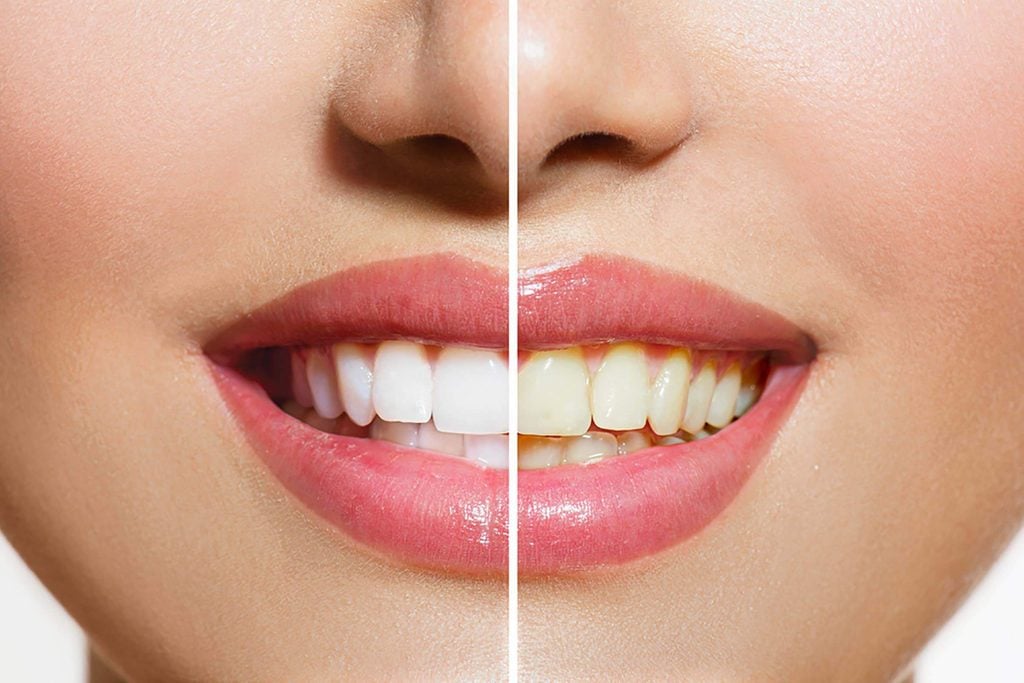Yellow Teeth Are Actually Stronger Than Bright White Teeth—Here’s Why
Updated: Sep. 03, 2019

Good news: You don't need to spend another cent on teeth whitener.
It seems that everyone strives for bright white teeth. There are whitening agents in toothpastes (which apparently don’t really do the trick), floss, mouthwash, strips, gels, and even chewing gum. Yellow teeth seem to get a bad reputation and are usually associated with poor oral hygiene. Fortunately, we have some good news for those who lack those pearly whites. Yellow teeth are actually stronger than bright white teeth! (Here are some of the things that are staining your teeth.)
We know, it’s hard to believe. “Enamel can appear to be bluish-white due to natural translucence some people have in their teeth,” explains Kevin Sands, DDS, Beverly Hills-based cosmetic dentist. “The dentin beneath is naturally yellow, it has to do with its chemical and structural composition.” This creates a light grey or light yellow color. (However, if your teeth are significantly darker than a light yellow, there may be an underlying cause such as disease or tooth decay.)
When used as directed, whitening agents and bleaching products do not weaken enamel; however, it can occur when something extremely abrasive is used to scrub the teeth white, notes Dr. Sands. “This way you can actually remove a layer of enamel.”
Bleaching products can have multiple side effects, the most common being sensitivity to the cold or what’s known as “zingers”—sharp, sporadic pains in the gum area after bleaching. Most of the time, however, the zingers last only a matter of hours before they go away for good. (Here are some ways to soothe sensitive teeth.)
If you still want to strive for those white teeth though, there are plenty of chemical-free routes to take that won’t damage your enamel—like eating these seven foods and or trying these 10 other ways to naturally brighten your teeth.